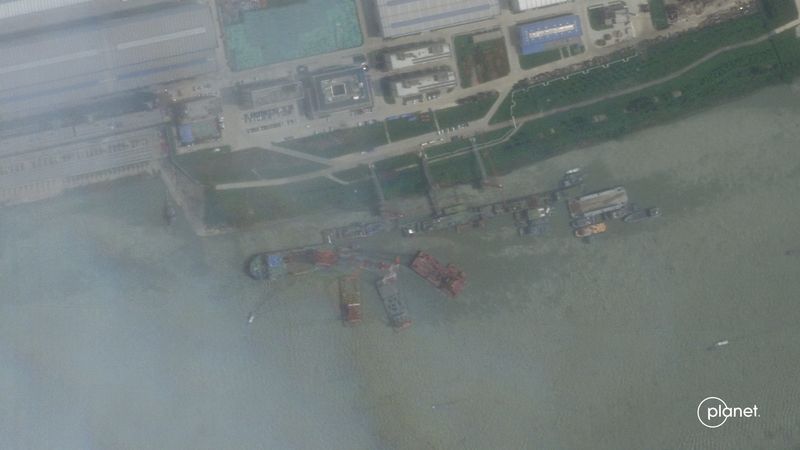Chinese nuclear-powered submarine sank earlier this year, US official says
2024.09.26 15:16

WASHINGTON (Reuters) – China’s newest nuclear-powered attack submarine sank earlier this year, a senior U.S. defense official said on Thursday, a potential embarrassment for Beijing as it seeks to expand its military capabilities.
China already has the largest navy in the world, with over 370 ships, and it has embarked on production of a new generation of nuclear-armed submarines.
A senior U.S. defense official, speaking on condition of anonymity, said China’s new first-in-class nuclear-powered attack submarine sank alongside a pier sometime between May and June.
The official said it was not clear what caused it to sink or whether it had nuclear fuel on board at the time.
“In addition to the obvious questions about training standards and equipment quality, the incident raises deeper questions about the PLA’s internal accountability and oversight of China’s defense industry – which has long been plagued by corruption,” the official said, using an acronym for the People’s Liberation Army.
“It’s not surprising that the PLA Navy would try to conceal” the sinking, the official added.
China’s embassy in Washington did not immediately respond to a request for comment. The news was first reported by the Wall Street Journal.
A series of satellite images from Planet Labs from June appear to show cranes at the Wuchang shipyard, where the submarine would have been docked.
As of 2022, China had six nuclear-powered ballistic missile submarines, six nuclear-powered attack submarines and 48 diesel-powered attack submarines, according to a Pentagon report on China’s military. That submarine force is expected to grow to 65 by 2025 and 80 by 2035, the U.S. Defense Department has said.
On Wednesday, China said it had successfully conducted a rare launch of an intercontinental ballistic missile into the Pacific Ocean, a move likely to raise international concerns about the country’s nuclear buildup.
The United States and China held theater-level commander talks for the first time earlier this month, amid efforts to stabilize military ties and avoid misunderstandings, especially in regional hot spots such as the South China Sea.








